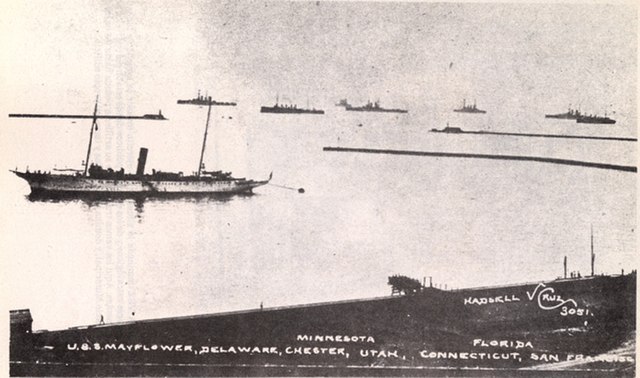In security studies and international relations, a police action is a military action undertaken without a formal declaration of war. In the 21st century, the term has been largely supplanted by "counter-insurgency". Since World War II, formal declarations of war have been rare, especially military actions conducted by the Global North during the Cold War. Rather, nations involved in military conflict sometimes describe the conflict by fighting the war under the auspices of a "police action" to show that it is a limited military operation, different from total war.
Dutch troops during Operation Kraai, a police action which took place during the Indonesian National Revolution in 1948.
The Banana Wars were a series of conflicts that consisted of military occupation, police action, and intervention by the United States in Central America and the Caribbean between the end of the Spanish–American War in 1898 and the inception of the Good Neighbor Policy in 1934. The military interventions were primarily carried out by the United States Marine Corps, which also developed a manual, the Small Wars Manual (1921) based on their experiences. On occasion, the United States Navy provided gunfire support and the United States Army also deployed troops.
United States Marines with the captured flag of Augusto César Sandino in Nicaragua in 1932
United States Marines with a Haitian guide patrolling the jungle in 1915 during the Battle of Fort Dipitie
William Allen Rogers cartoon depicting Theodore Roosevelt's Big Stick ideology
American warships off Veracruz in 1914





